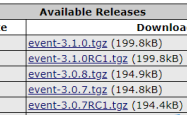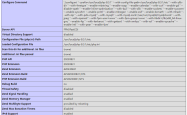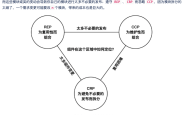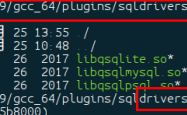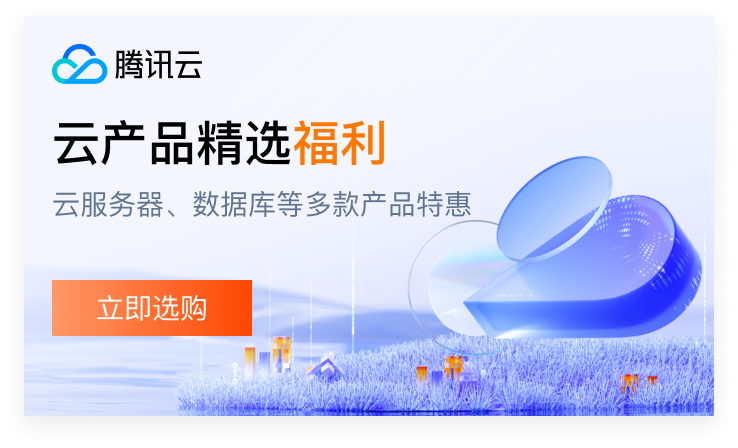关于Laravel-admin的基础用法总结和自定义model详解
吾爱主题
阅读:288
2021-08-26 14:41:00
评论:0
总结laravel-admin展示用到的基本方法
基础用法
自定义model
?| 1 2 3 4 5 6 7 | 当列表数据获取有特定条件或自己写ORM方法时可以用到,支持排序 $grid ->model()->select( 'id' , 'name' )->where( 'status' ,1)->groupBy( 'project_id' ); $grid ->model()->select( 'id' , 'name' )->where( 'status' ,1)->groupBy( 'project_id' ); //结合having 查出名字重复的 $grid ->model()->select( 'name_en' )->groupBy( 'name_en' )->havingRaw( 'count(name_en)>1' ) //嵌套子查询 查出名字重复的全部信息 $grid ->model()->select( 'id' , 'name_en' )->whereIn( 'name_en' ,Project::select( 'name_en' )->groupBy( 'name_en' )->havingRaw( 'count(name_en)>1' ))->orderBy( 'name_en' ); |
模型数据获取
第一列显示id字段,并将这一列设置为可排序列
?| 1 | $grid ->id( 'ID' )->sortable(); |
获取单列数据的方法
?| 1 | $grid ->name_cn( '名称' ); |
注:name_cn为与数据库对应的字段名
?| 1 | $grid ->column( 'name_cn' , '名称' ); |
判断type来显示不同的状态
?| 1 2 3 | $grid ->column( 'type' , '类型?' )->display( function ( $type ) { return $type == 1 ? '111' : '222' ; }); |
where条件
?| 1 | $grid ->model()->where( 'type' , 0); |
三个时间的显示
?| 1 2 3 4 | // 下面为三个时间字段的列显示 $grid ->release_at(); $grid ->created_at(); $grid ->updated_at(); |
筛选框控制方法
基本方法
?| 1 2 3 4 5 6 7 8 9 10 11 12 13 | //filter($callback)方法用来设置表格的简单搜索框 $grid ->filter( function ( $filter ) { //1.时间段筛选 设置created_at字段的范围查询 $filter ->between( 'created_at' , '筛选时间' )->datetime(); //2.字段模糊查询 like = '% %' $filter ->like( 'name' , '姓名' ); //3.字段equal 筛选 $filter ->equal( 'status' , '状态' )->select([0 => '下线' , 1 => '上线' ]); //4.去掉默认的ID搜索 $filter ->disableIdFilter(); //5. }); |
按钮控制
禁用导出
?| 1 | $grid ->disableExport(); |
禁用新增
?| 1 | $grid ->disableCreateButton(); |
禁用行选择checkbox
?| 1 | $grid ->disableRowSelector(); |
去掉重置 [from]
?| 1 | $form ->disableReset(); |
关闭默认行操作
?| 1 2 3 4 5 6 7 8 | $grid ->actions( function ( $actions ) { //关闭删除 $actions ->disableDelete(); //关闭编辑 $actions ->disableEdit(); //自定义操作按钮 $actions ->append( '<button type="button" class="btn btn-danger noShow" data-id="' . $actions ->getKey() . '" >隐藏</button>' ); }); |
关闭批量删除
?| 1 2 3 4 5 6 | $grid ->tools( function ( $tools ) { //关闭批量删除 $tools ->batch( function ( $batch ) { $batch ->disableDelete(); }); }); |
FORM表单提交
禁用重置按钮
?| 1 | $form ->disableReset(); |
文本输入框
?| 1 2 | //默认展示$data['name']的值,新接收的值存储user表name字段 $form ->text( 'user.name' , '名称' )-> default ( $data [ 'name' ]); |
上传图片/文件
?| 1 2 3 4 5 6 7 | $form ->image( 'user.logo' , 'logo' ) #随机文件名 ->uniqueName() #验证文件格式( 'mimes:doc,docx,xlsx' ); ->rules( 'mimes:png' ) #输入框下边的help提示语 ->help( $str ); |
表单提交url
?| 1 2 3 4 5 | $form ->url( 'user.website' , '官网' ) #默认填充url 传参 -> default ( $url ) #提示的url ->help( 'eg: http://www.aware.bi' ); |
表单提交下拉框
?| 1 2 3 4 | #下拉框展示 $message 提示语 $form ->multipleSelect( 'project.tags1' , $message ) #下拉框数据 ->options( $tags [ 'children' ]); |
select下来
?| 1 2 | $types = array ( '0' => '教育' , '1' => '医疗' ); $form ->select( 'type' , '类型' )->options( $types ); |
laravel SQL取值
?| 1 | $users = User::all()->pluck( 'name' , 'id' )->toArray(); |
表单输入HTML editor编辑器
?| 1 | $form ->editor( 'detail' , '详细介绍' ); |
单选按钮 样式转换
?| 1 2 3 4 5 | $states = [ 'on' => [ 'value' => 1, 'text' => '上线' , 'color' => 'success' ], 'off' => [ 'value' => 0, 'text' => '下线' , 'color' => 'danger' ], ]; $form -> switch ( 'status' , '上/下线' )->states( $states ); |
隐藏域
?| 1 | $form ->hidden( 'is_in' ); |
保存数据的回调
?| 1 2 3 4 5 6 7 8 9 10 | $form ->saving( function (Form $form ) { #指定值为固定1 $form ->is_in = 1; #验证值是够有重复 if ( $from ->nick_name !== $form ->model()->email && User::where( 'email' , $form ->email)->value( 'id' )){ #错误信息提示 $error = new MessageBag([ 'title' => '提示' , 'message' => '邮箱已存在!' ]); return back()->withInput()->with(compact( 'error' )); } }); |
自定义按钮操作
我们先自定义了一个隐藏按钮
?| 1 2 3 4 5 6 | $grid ->actions( function ( $actions ) { //自定义操作按钮 $actions ->append('<button type= "button" class = "btn btn-danger noShow" data-id= "' . $actions->getKey() . '" >隐藏</button>'); //当前数据的ID }); |
在controller写JS文件把执行JS渲染到模板
?| 1 2 3 4 5 6 7 8 9 10 11 12 13 14 15 16 17 18 19 20 21 22 23 24 25 26 27 28 29 30 31 32 33 34 35 36 37 38 39 40 41 42 43 44 45 46 | $js = <<<EOD <script> //隐藏的点击事件 $(document).on( 'click' , '.noShow' , function () { //获取的ID var id = $(this).data( 'id' ); console.log(id); swal({ title: "确认隐藏?" , type: "warning" , showCancelButton: true, confirmButtonColor: "#DD6B55" , confirmButtonText: "确认" , closeOnConfirm: false, cancelButtonText: "取消" }, function (){ $.ajax({ method: 'post' , url: '/admin/articles/hidden' , data: { //文章ID id:id, //post请求token _token:LA.token, }, success: function (data) { $.pjax.reload( '#pjax-container' ); if (typeof data === 'object' ) { if (data.status == 1) { swal(data.msg, '' , 'success' ); } else { swal(data.msg, '' , 'error' ); } } } }) } ) }); </script> EOD; //传递到页面 $content ->body( $js ); //执行你的model $content ->body(); |
以上这篇关于Laravel-admin的基础用法总结和自定义model详解就是小编分享给大家的全部内容了,希望能给大家一个参考,也希望大家多多支持服务器之家。
原文链接:https://blog.csdn.net/guoyanga1/article/details/80774570
声明
1.本站遵循行业规范,任何转载的稿件都会明确标注作者和来源;2.本站的原创文章,请转载时务必注明文章作者和来源,不尊重原创的行为我们将追究责任;3.作者投稿可能会经我们编辑修改或补充。



